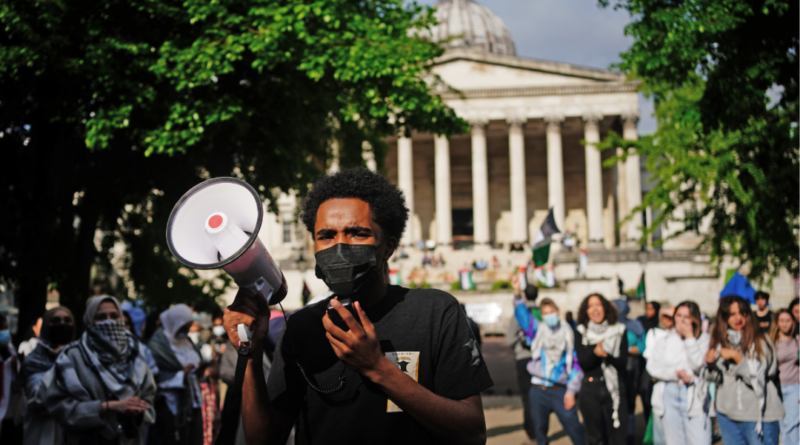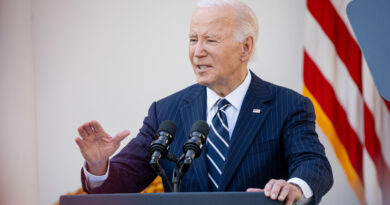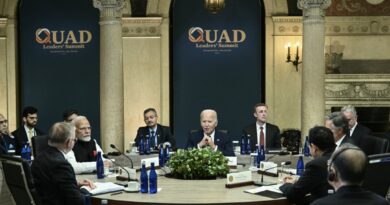High Court Orders London University to Clear Pro-Palestinian Protest Camps
University College London has successfully obtained possession orders allowing them to remove activists from their campuses.
University College London (UCL) secured a High Court order to reclaim parts of its campus that had been occupied by pro-Palestinian protest camps since May.
Legal action was taken by UCL against the “unauthorized occupational encampment” on its main estate, citing activists protesting on private property.
Judge Francesca Kaye granted UCL the order on Tuesday, stating that the protesters had no realistic chance of proving interference with their human rights or discriminatory behavior by the university.
The court was informed that the protest began on May 2 with 12 tents, eventually growing to 52 tents and around 50 activists at its peak.
Following Israel’s military action against Hamas terrorists in the Gaza Strip on October 7, 2023, campus protests erupted.
Preventing Disruption
The court was informed that the possession order was sought by the institution to avoid disruption to its academic community.
Katharine Holland, KC, representing UCL, stated in written arguments that escalating incidents and disruptions prompted the university to seek the possession order. UCL was concerned about utilizing the main quad for events, especially hosting freshers’ week for new students in September.
The written arguments highlighted the university’s aim to safeguard its right to possess its land, continue its activities, and prevent disruption to the university’s community.
“The encampment pertains to current events in the Gaza Strip and UCL’s alleged involvement in Israel’s role in that conflict,” the arguments mentioned.
Holland noted that by July 19, the university had spent over £200,000 on security fees to manage the protest areas, which UCL deemed unsustainable.
Pressured to Surrender to Protesters’ Demands
Furthermore, it was argued that the protest did not qualify as free speech or the right to protest since it deprived the university of rightful possession and aimed to coerce UCL into meeting demands.
Initially unable to identify protesters on their campus, UCL later identified students Shaun Boodram and Kais Al-Kaisi as defendants.
Barrister Audrey Cherryl Mogan, representing Boodram and Al-Kaisi, confirmed on Tuesday that both clients withdrew their defense against the possession order.
According to UCL lawyers, the two students had claimed that the university’s attempts to regain control were discriminatory based on race, religion, and beliefs.
During Tuesday’s hearing, UCL’s representative Ijeoma Omambala, KC, stated that there was no evidence to support those claims.
Universities Granted Possession Orders
The London School of Economics was the first British institution to remove protesting students from pro-Palestinian encampments. In June, they obtained a court order banning encampments in one of its buildings after students supporting Palestinians occupied the atrium for over a month.
Activists argued that their free speech and assembly rights would be violated if they were compelled to leave. However, High Court judge Mr. Justice Johnson ruled in July that they had no real chance of proving that their evictions would contravene their human rights.
Protesters at Nottingham demanded bursaries for Palestinian students and transparency about the university’s connections with arms manufacturers.
Similarly, activists at Birmingham called for an apology for the university’s delayed condemnation of Israel’s actions in Gaza and its affiliations with arms manufacturers linked to Israel.
PA Media contributed to this report.





